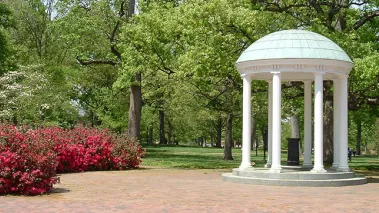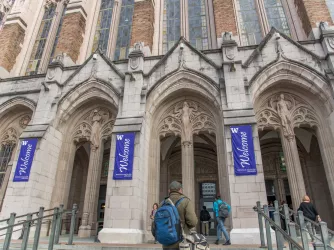Table of Contents
Victory: Academic freedom for faculty preserved at UNC - Chapel Hill

University of North Carolina - Chapel Hill professor of history Jay Smith has been granted permission to teach his course, “Big-Time College Sports and the Rights of Athletes, 1956 to the Present” during the spring 2018 semester. This decision comes after he was initially denied permission to teach the class in November 2016 for vague “programmatic and strategic reasons.”
Smith was inspired to create the course, which he previously taught twice before, after co-authoring the book “Cheated: The UNC Scandal, the Education of Athletes, and the Future of Big-Time College Sports,” which chronicles the 18-year-long student-athlete grade inflation scandal at UNC. The Chronicle of Higher Education confirmed with History Department Chair Fitz Brundage that “higher-level administrators had approached him with concerns about the course, and that it was the first time in his four-year tenure as chairman that that had happened over a single course.”
45 other faculty members of the UNC history department responded to the course denial by issuing a joint statement alleging that “the College took this action to block broader understanding of the recent scandals in UNC’s major intercollegiate athletic programs and other violations of legal, moral, and academic standards in the history of modern college athletics.”
This statement caught the eye of FIRE and led us to take action by sending the university a letter imploring administrators to listen to their professors’ request that the university respect academic freedom and entrust its faculty with the “primary responsibility for the content, quality, and effectiveness of the curriculum.” This request was more than reasonable, as it is a standard put in place by UNC’s accreditation agency, the Commission on Colleges of the Southern Association of Colleges and Schools.
FIRE’s July 20 letter states:
To our knowledge, UNC has put forth no “exigent” and “obviously compelling” reason for refusing to schedule “Big-Time College Sports.” Instead, the class appears to have been cancelled in part because of its focus on the university’s prior mistakes. That academic freedom may sometimes result in consideration of ideas or contemplation of previous wrongs of an institution is inevitable. We must learn from mistakes in order to avoid their repetition.
FIRE is pleased to see UNC, which maintains a “green light” rating for campus free speech, respond to the concerns of its faculty, FIRE, and the American Association of University Professors (which also sent a letter on behalf of Smith). As Smith writes in his blog announcing the university’s revised decision, “If there is an encouraging moral to this story, it is this: sometimes faculty resistance works.”
Recent Articles
FIRE’s award-winning Newsdesk covers the free speech news you need to stay informed.

FIRE’s defense of pollster J. Ann Selzer against Donald Trump’s lawsuit is First Amendment 101

China’s censorship goes global — from secret police stations to video games

High schoolers: Become a voice for tomorrow, today!
